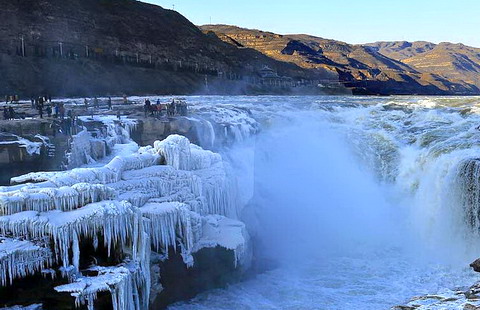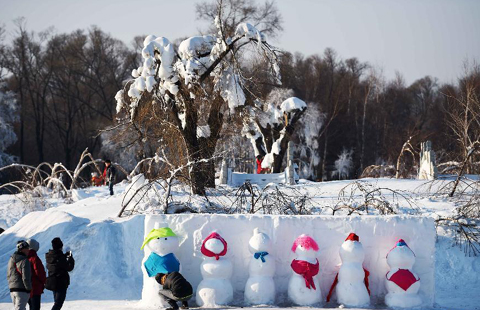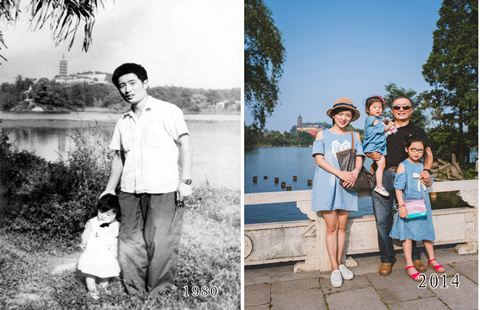Japan must learn right lesson from IS killings
Updated: 2015-02-09 07:53
By Liang Yunxiang(China Daily USA)
|
||||||||
The Islamic State group, which controls large swathes of northern Iraq and Syria, recently beheaded two hostages from Japan, a country that doesn't seem to be even remotely a target for the militant group's brutality and contempt for humanity. The murders, of course, have come as an overwhelming shock to the civilized world, as well as a wake-up call for Japanese leaders who failed to negotiate the release of the hostages.
The crisis started with the release of an online video, in which the IS extremists threatened to kill the two Japanese hostages in response to Japanese Prime Minister Shinzo Abe's financial support for the countries fighting the Islamic extremists. During his visit to the Middle East last month, Abe offered about $200 million in humanitarian and development aid to the countries.
After beheading the two Japanese hostages, the IS extremists released a video showing a Jordanian pilot they had kidnapped being burned alive after trilateral negotiations involving Japan, Jordan and the IS broke down. Furious at the IS' brutal act, Jordan hanged two Iraqi jihadists, including a woman, on Feb 4, bringing the futile negotiations to a tragic end.
Until the beheadings, the IS seemed to pose a threat only to the Middle East, the United States and Europe. In fact, France is yet to recover from the shock of the attack on the offices of satirical magazine Charlie Hebdo in Paris on Jan 7 in which 12 people were killed. But now even Japan, which is not directly involved in the assault on the IS, has become a target.
Does it have something to do with Japan's "positive pacifism", especially its Middle East policy? To strengthen Japan's diplomatic influence and increase military presence across the world, Abe has been seeking a greater role for his country in international affairs, mostly by loosening the constitutional restraints imposed on its defense forces after World War II.
This explains why Abe has been hell-bent on reinterpreting Japan's pacifist Constitution and claiming the right to carry out rescue missions abroad to help its embattled allies. In other words, Abe is keen on changing the neutral diplomatic position which Japan has been following over the past seven decades. In particular, he seeks a much more robust defense posture for Japan, especially in the face of rising China.
Abe's Middle East policy reflects the same slant. Compared with his predecessors, Abe has been visiting more countries, more frequently, in Latin America, Africa, Europe and Asia. The $200-million aid he promised to countries fighting the IS accounts for only a small portion of his $2.5 billion support for Middle East countries affected by terrorism- and civil war-related conflicts. Three days after Abe committed to the aid, the IS released the video threatening to kill the Japanese hostages because Japan had given money to countries to kill their women and children.
The tragic end of the hostage crisis has threatened the safety of Japanese nationals traveling or working overseas, because they could become easy targets of terrorists. The killing of two innocent hostages can prompt Japanese people to either put enough pressure on Abe to change his diplomatic policy or support his diplomatic thrust to deploy troops overseas.
In all likelihood, the Abe administration will exploit international sympathy for the country's loss and condemnation of the IS to implement its security policy. Abe can get any bills passed - including the one to allow the Self-Defense Forces to fight overseas on the pretext of protecting Japanese nationals - because of the huge majority his Liberal Democratic Party enjoys in the lower house of the parliament. He can also put the right of collective self-defense and revision of Japan's pacifist Constitution high on the government's agenda.
Yet the most urgent task for the Abe administration should be to revive Japan's economy if it really wants to expand the operational scope of the country's Self-Defense Forces.
The author is a professor of Japanese studies at Peking University.
(China Daily USA 02/09/2015 page13)
Most Viewed
Editor's Picks

|

|

|

|

|

|
Today's Top News
Venezuela's economic woes to continue: Panel
China seeks compensation from Mexico after high-speed project suspended
China to build two nuclear power plants in Argentina
Xi plans to make state visit to US
Trade numbers take big hit in January
Search continues for 3 missing in TransAsia crash
Beautiful girl loses battle with cancer
Three more H7N9 cases reported in China's Guangdong
US Weekly

|

|















